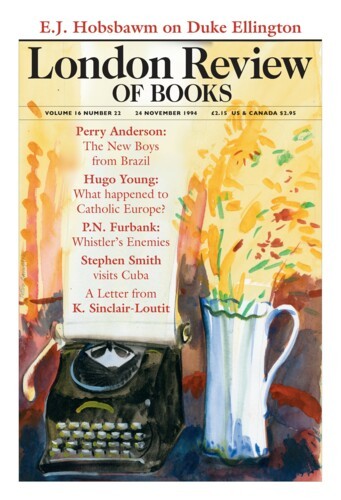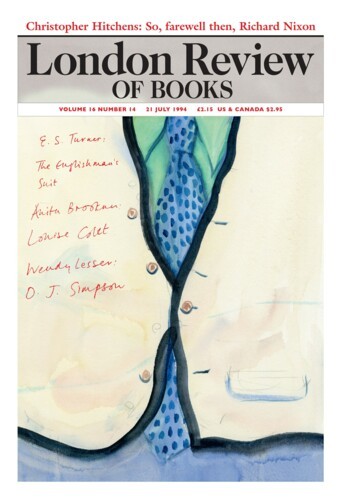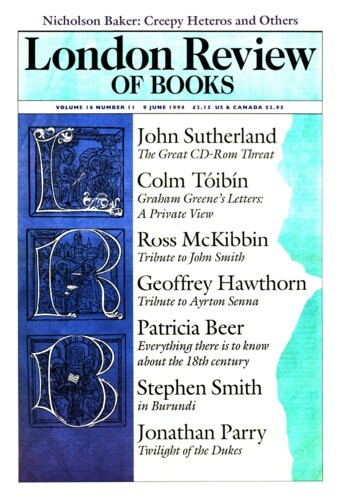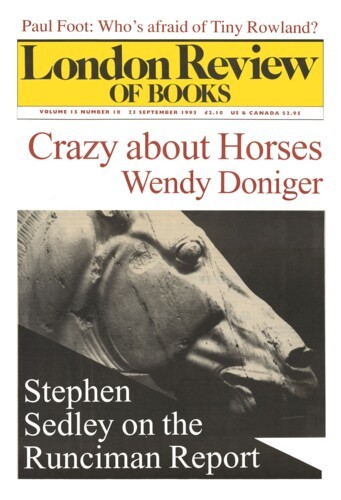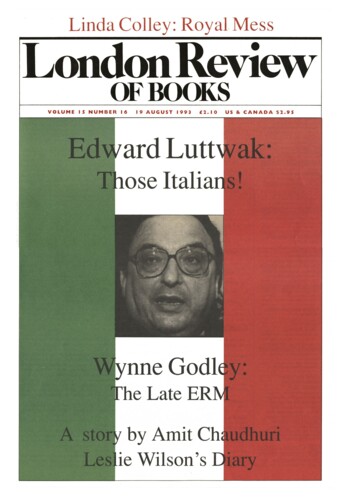Do Not Fool Around
E.S. Turner, 24 November 1994
The man of the year in 1909 was Louis Blériot, in whom I have a personal interest, since I was a five-month foetus at the time of his cross-Channel flight. Notoriously, this exploit showed that Britain was wide open to aerial attack and I was one of numerous infants born in the Belle Epoque who were called on to spend up to four years of their adult lives trying to shoot aircraft out of Britain’s skies; and a damned difficult task it was.
